[ad_1]
With a rich history and recent evolution, Belgrade is now home to the latest Bitcoin working and presentation space.

This is an opinion editorial by Plumski, a native of Serbia and founder of the Belgrade Bitcoin Hub.
“What we now want is closer contact and better understanding between individuals and communities all over the earth, and the elimination of egoism and pride which is always prone to plunge the world into primeval barbarism and strife…”
–Serbian-American inventor Nikola Tesla.
As Bitcoin adoption grows at an unprecedented rate for a new technology, Bitcoiners are setting up physical locations around the world where enthusiasts can work and play in group atmospheres.
For those of us taking part in this Bitcoin “Renaissance” period, it has been a great joy to watch the Bitcoin Beach success story in El Salvador that likely resulted in the country-wide adoption of bitcoin as legal tender. Since such projects are numerous in Africa, Central and South America, Bitcoiners living in Eastern Europe have watched these developments with intrigue. And added to that is the fact that Eastern Europe is economically underdeveloped compared to its Western European counterpart.
Inspired by what we saw in other parts of the world, a small group of Bitcoiners centered in the Serbian capital city of Belgrade recently opened a Bitcoin hub where we want to welcome visitors from around the world.
A New Chapter For A Historic City
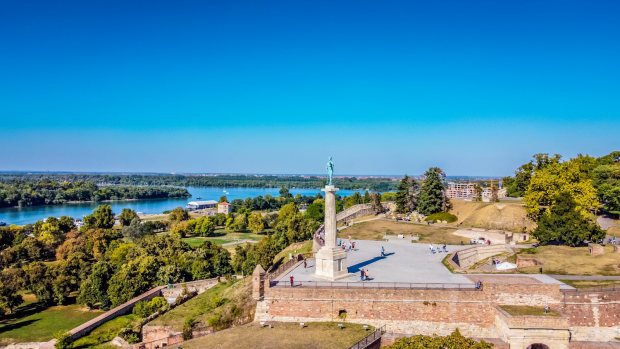
Belgrade is a city that lies at the confluence of two great European rivers, the Danube and Sava, the apex of which is marked by the great Kalemegdan Fortress. This defensive fortress has withstood the test of time for over 15 centuries, bearing witness to battles too numerous to count. The history of Belgrade and the Serbian people as a whole has been a turbulent one.
Having the (mis)fortune of being located at the center of the geopolitically-important Balkan Peninsula, often on the border of two rivaling Eurasian empires, its people have been fighting for their independence from foreign influence throughout their history. Although it’s hard to estimate, history suggests that Belgrade has been destroyed and rebuilt over 40 times throughout its 17-century existence. Despite this, or perhaps because of it, Belgrade has always been the economic and artistic center of the region, as well as a home to people of all races, faiths and denominations.
Today, Belgrade is once again undergoing an important historical transition period. During the 1990s, civil wars took place in Croatia and Bosnia, republics of former Yugoslavia, culminating in the NATO bombing of Serbia and its capital city in 1999 and about 15 years of economic isolation from the western world.
Although the transformation is not fully complete, Belgrade is re-emerging as a vibrant cultural epicenter of the region. Much like the mosaic of architectural styles visible in the city’s buildings, ranging from Communist-style, soulless heaps of gray concrete intermingled with wonderful old Secessionist buildings adorned with ornamental facades, its streetfronts are a collage of mom-and-pop-owned, modest businesses clashing with modern boutiques and glass-clad office buildings. Gone are the days when food options in the city’s restaurants were limited solely to Balkan traditional cuisine. Now, poke, sushi, Chinese and Indian food, burger joints and American-style diners are all on the menu for the city’s residents.
Contributing to the metamorphosis of the city’s cultural fabric is also a noticeable shift in the residents who make up its population. Perhaps due to the relatively low cost of living compared to other world capitals, or Serbia’s generally lax pandemic restrictions, or the political uncertainty that seems to have gripped the western world as of late, I have seen that a once heavily-emigrating city has been welcoming back a large segment of its old population and a sizeable inpouring of digital nomads that now call this place home.
Bitcoin Resilience, Despite Obstacles
In Serbian, the term “inat,” a historically-defining characteristic of its people, can be loosely translated as “resilience.” This mindset is ingrained in its population which, time and time again, rebuilds its homes on the heels of destructive periods to their former glory, to the dismay of invading armies, occupiers and detractors, because: inat.
As a result of years of unfulfilled promises from regional politicians, people of the Balkans are hard to convince about the long-term benefits that can be realized by adopting Bitcoin in one’s life. A low time preference way of life to most people in this region is associated with disappointment and the lowered standards of living that have happened many times before.
Promises of quick riches (especially ones that suggest there is no associated risk whatsoever) is much more preferable for many and, thus, the power of the shitcoin narrative has sadly thrived in this region as “cryptocurrency” and “blockchain” marketing schemes gripped the world at large. To those of us who grew up in this part of the world, it is a dark comedy that, for instance, the Celsius bankruptcy affected our country as well. Like an exaggerated piece of irony from an Emir Kusturica movie, when the dust around this company’s disastrous financial collapse finally settled, legal documents revealed that several entities associated with the Serbian government were listed as creditors to this well-known Ponzi scheme.
In general, Bitcoin-only companies and projects are hard to find here, but a growing community of Balkan Bitcoiners are imagining a different world of financial freedom to their compatriots.
And, much like Belgrade many times before, my personal life is undergoing a restructuring period. On my travels through the Bitcoin rabbit hole, I have met many people who are redesigning their lives around this paradigm-shifting technological discovery. With my recent move back from Canada to the city where I grew up, as I look around, it is easy to draw many parallels between the Bitcoin network architecture and the somewhat chaotic organization of Belgrade that just somehow seems to work — tick tock, next block.
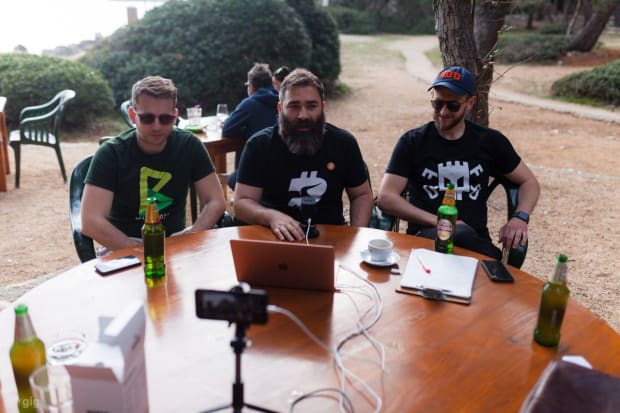
Introducing DvadesetJedan
A group of us Bitcoiners from the countries of former Yugoslavia began to organize regular meetups about a year ago. Our group, called DvadesetJedan is an offshoot of the German Einundzwanzig initiative that was started to bring plebs together in meatspace so that enthusiasts can socialize, share ideas and formulate business ventures together in an informal atmosphere.
The idea behind Einundzwanzig is that geographically-distributed, independent Bitcoin communities can form across the world and eventually collaborate on their ongoing projects and offer traveling Bitcoiners a home, wherever they happen to be. In the Balkans, DvadesetJedan records a weekly podcast in the Serbian/Croatian language to cover Bitcoin news, philosophy and the technical architecture of the network. We are very proud to be the first Bitcoin-only podcast in the region and it is a great way for people that are too far from the city’s urban centers, where our meetups take place, to receive high-signal Bitcoin content on a regular basis. This podcast is also complemented by our active Telegram channel and while our core group is made up of vehement shitcoin minimalists, a fair-sized part of the group is made up of noobs. We take special joy in guiding them through their journey toward understanding Bitcoin.
Since four of the six former Yugoslav republics that are now independent countries speak the same language, our initiative is multinational in nature. We collaborate with members from Slovenia, Macedonia, Croatia, Bosnia and Montenegro and our group has been steadily growing over the past year. We have a mixture of Bitcoin builders, content creators, developers and Bitcoin enthusiasts in the group who all come together on a regular basis for bar hopping, barbecues and road trips to Bitcoin events in the region.
While trendy breweries and coffee shops for our meetups are aplenty in Belgrade, a Bitcoin-dedicated space did not exist here nor in the wider Balkan peninsula. A small group of us decided to undertake the mission of finding and equipping a space where more serious discussions and presentations can take place.
Since Bitcoin professionals here are somewhat isolated compared to more-established regions such as Germany and the U.S., we also wanted the space to serve as a co-working environment for locals to bounce ideas off of other experts in the field. As we plan on partnering with local developers to build Bitcoin-focused businesses, this office space would also serve as the physical location for new startups to work with their teams.
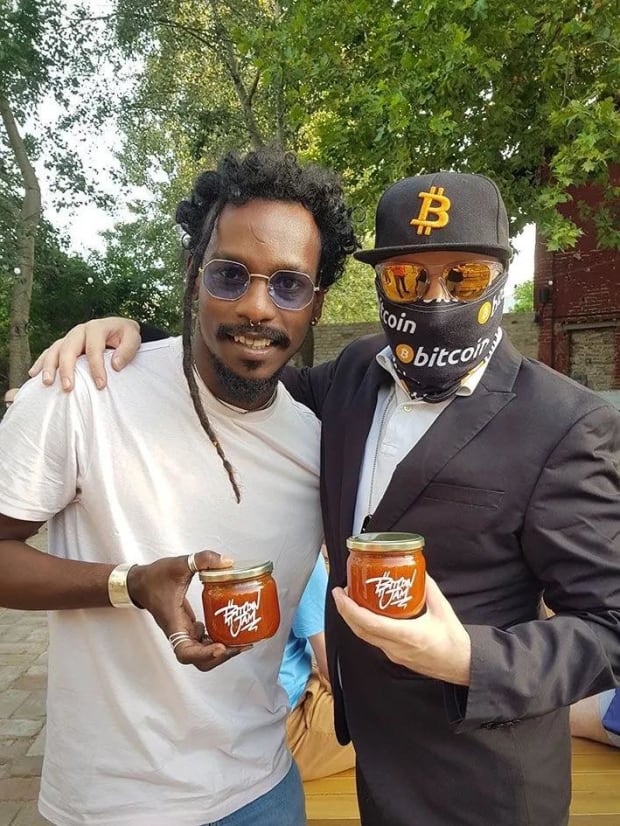
Meetup in Belgrade: R0ckstarDev and Johns Beharry displaying Bitko Yinowski’s famous Bitcoin jam made from Serbian apricots.
The hunt was on and we scoured Belgrade in search of an ideal location. We focused our search to the center of the city so that future visitors can not only work in a comfortable space but can also easily access the museums, galleries, music venues, bars and restaurants that make up Belgrade’s exciting social scene. We eventually found a duplex on the top floor of an old, mixed-use building next to the University of Belgrade’s philosophy faculty and it is perhaps fitting that the fort of Kalemegdan is within a two-minute walk from our new Belgrade Bitcoin Hub.
Welcome To The Belgrade Bitcoin Hub
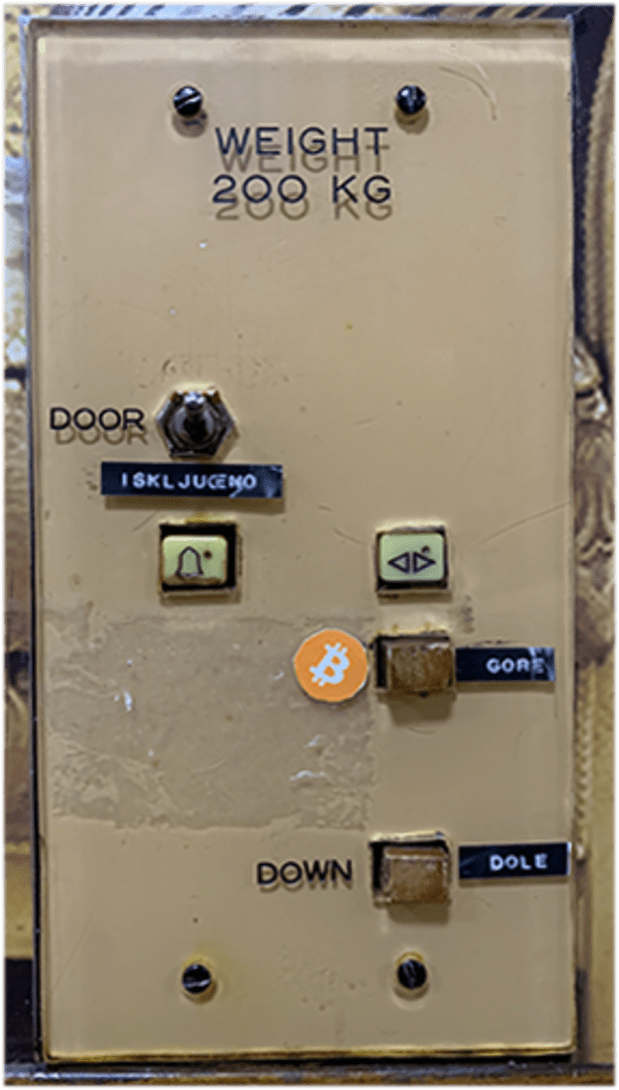
Elevator control board to the top floor of the building where the hub is located. Source: Author.
The hub features a large, communal, co-working/presentation room where most of the action will be taking place, with two additional rooms that we will outfit into a recording studio and a more private office space.
At our disposal for visitors we have a variety of hardware wallets, a point-of-sale unit powered by BTCPay Server, a Bitcoin node and an Antminer S9 to experiment with the newest software being developed by the tenants of the space. For educational purposes, or to get extra inspiration, the hub has a small collection of Bitcoin literature for visitors to read.
During the early days of activity in the hub, it has been populated by drop-in visitors that prefer working in group settings. As we grow, we will develop the hub to be a venue for cultural events, art exhibits/auctions, hackathons, as well as a small-scale presentation center for Bitcoiners. While advanced users will be working at the hub, novices will benefit from presentations and hands-on demonstrations that will take place in the evenings and weekends. Inspired by many ventures around the world with similar goals in mind, we are especially proud that we made this hub a reality using our own funds to finance these initial steps.
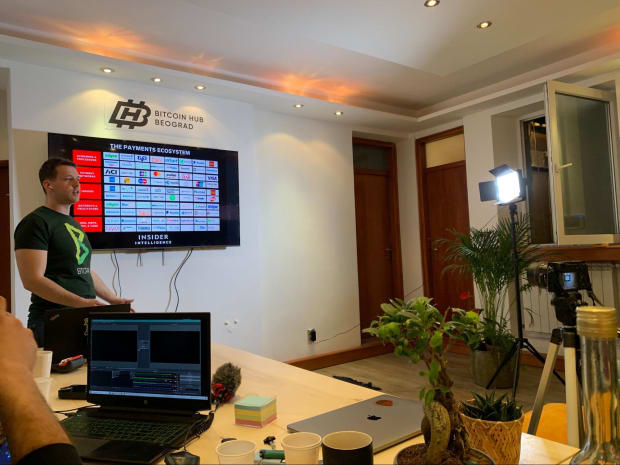
In one of the first public presentations at the hub, Pavlenex described the history of the BTCPay Server project along with a live demo to an audience. Source: Author.
We want this space to be a permanent Bitcoin home in Belgrade and we hope that organizing such events will enable the space to finance itself for many years to come. While locals will be able to purchase annual memberships, we also have a structure in place so that Bitcoiners who do not live in Belgrade can come and work from the hub during their visits to Serbia. We are especially excited to welcome foreigners to the Belgrade Bitcoin Hub to build and help us build, however, the space will be limited.
Indeed, matching Bitcoiners from around the world with the immense talent that exists in Serbia is one of our top priorities. After all, everything our small group of believers has done to date has culminated into the Belgrade Hub genesis block.
This is a guest post by Plumski. Opinions expressed are entirely their own and do not necessarily reflect those of BTC Inc or Bitcoin Magazine.
[ad_2]
Source link

